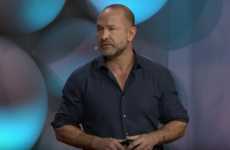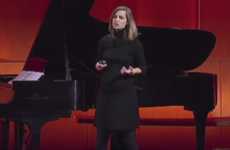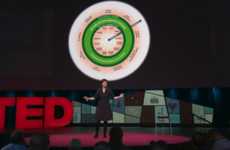
Need Inspiration?
Get inspired by 4,000+ keynote speaker videos & our founder, a top keynote speaker on innovation.
Enric Sala's Speech on High Seas Preservation Focuses on the Lives of All
Justin Lam — June 8, 2018 — Keynote Trends
Former university professor and marine ecologist Enric Sala delivered a speech on high seas preservation.
Sala begins his speech with a case study on a place called Cabo Pulmo in Mexico. The sea in that area was an underwater desert, devoid of life and showed no signs of recovery. Out of frustration, the fisherman in the area decided to stop fishing completely and ended up turning the area into a national park in the sea. 10 years later, the barren underwater desert around Cabo Pulmo became a hotbed of aquatic life and the fishermen were now making much more from the tourism industry.
After hearing of Cabo Pulmo, and visiting it, Sala quit his job as a professor and dedicated his life to documenting "some of the wildest places left in the ocean" and also worked with governments to protect them. While his work has gone on to save a sizeable portion of the seas and oceans, Sala admits that only two percent of the ocean is fully protected from fishing and other activities.
Much of this fishing occurs in the high sea, the area of water outside the 200 nautical miles from a country's shores. This is where Sala focuses the bulk of his work as he employs satellite technology to track individual boats on the high seas, as well as discovering who profits from these boats.
Sala ends his speech on high seas fishing by addressing the overall issues with this form of fishing and extends it past ecological preservation and briefly discusses the human exploitation and slavery involved in certain aspects of this industry. Throughout the speech, Sala brings a sense of optimism as his work has already impacted the seas in a positive way. He underpins his message by reinforcing the idea that the ocean should be a place of life as it positively impacts our own.
Sala begins his speech with a case study on a place called Cabo Pulmo in Mexico. The sea in that area was an underwater desert, devoid of life and showed no signs of recovery. Out of frustration, the fisherman in the area decided to stop fishing completely and ended up turning the area into a national park in the sea. 10 years later, the barren underwater desert around Cabo Pulmo became a hotbed of aquatic life and the fishermen were now making much more from the tourism industry.
After hearing of Cabo Pulmo, and visiting it, Sala quit his job as a professor and dedicated his life to documenting "some of the wildest places left in the ocean" and also worked with governments to protect them. While his work has gone on to save a sizeable portion of the seas and oceans, Sala admits that only two percent of the ocean is fully protected from fishing and other activities.
Much of this fishing occurs in the high sea, the area of water outside the 200 nautical miles from a country's shores. This is where Sala focuses the bulk of his work as he employs satellite technology to track individual boats on the high seas, as well as discovering who profits from these boats.
Sala ends his speech on high seas fishing by addressing the overall issues with this form of fishing and extends it past ecological preservation and briefly discusses the human exploitation and slavery involved in certain aspects of this industry. Throughout the speech, Sala brings a sense of optimism as his work has already impacted the seas in a positive way. He underpins his message by reinforcing the idea that the ocean should be a place of life as it positively impacts our own.
0.7
Score
Popularity
Activity
Freshness

















